How are Industrial Sewing Machines Different from Home Ones?
by Alice Davis
Many of us have a hobby of sewing and bedazzling our closing; there are also many among us who take it as a passion and have been able to make a career out of it. Now, there are also sewing machines used in factories and industries that are used for mass production.
Most people would not be able to understand or realize the differences between the two types of sewing machines. But those to have used and know the use of both of them will be able to tell you the difference.
Going into the article, you will also know the difference and the different uses of the two machines.
Contents

Are the Differences Noticeable?
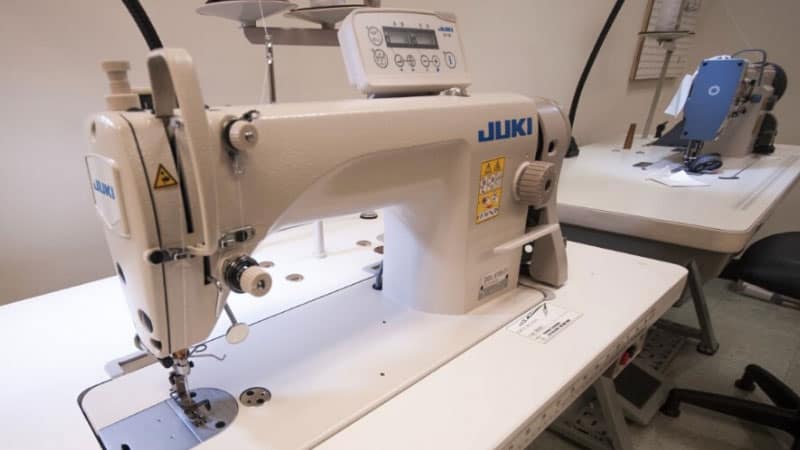
We have already established that there are several differences between a residential sewing machine and an industrial one. Now the question may arise whether they are noticeably dissimilar or is it just another way of getting the customers to buy a machine they do not really need for a much higher price.
In reality, these two sewing machines are not the same. And there are several contrasts between the two, which leads to people picking and using one over the other.
The stitches made by the equipment are different; the quality is not the same. And as the industrial sewing machine is used in mass production, it has to be more powerful than the one we have at home.
The Key Differences
There are five main dissimilarities we are going to be discussing in the article. Each of these plays a very important role and is significant when it comes to sewing.
Type of stitches
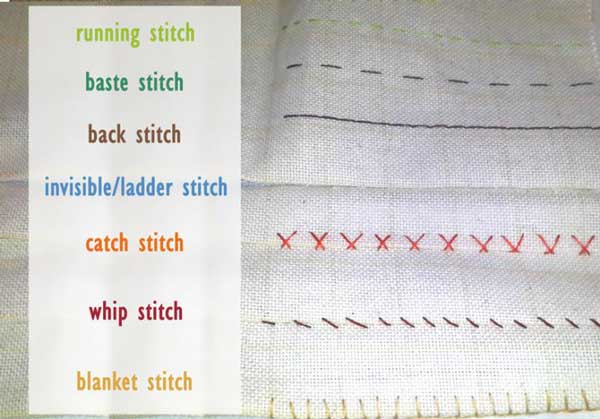
Residential Sewing Machine
Almost all at-home sewing machines have the option to use several different types of stitches. Even the most simple one gives you the opportunity to make a selection. The number may vary from anywhere between 20 to 100. This choice is given so that the product you make is more personalized.
Industrial Sewing Machine
Now, these are made for producing the same time of clothing items over and over again. Primarily used in garments factories, these come with only one option, you will only have one type of stitch. The main reason behind the one-stitch setting of the machine is so it is able to perform without putting any wear on the cloth.
Quality of the Sewing
Residential Sewing Machine

The quality of the stitches when it comes to a residential sewing machine is not that important, as the goods produced are more for personal use or as a part of a 'do it yourself' project. And therefore, any tension on the machine or change in the material can lead to problems in the sewing.
Which you will have to make adjustments to later on. It might be a bit of a hassle, but it does not make much of a difference.
Industrial Sewing Machine

When it comes to the quality of the sewing, there is no beating the industrial sewing machines. You will not be able to find this kind of stitch with any other kind of machine. Each and every stitch made by the industrial one is perfect; it has to be; otherwise, the buyers are not going to accept it.
Speed of Sewing
Residential Sewing Machine

Your aim with sewing machines such as this to take your time and make something you are passionate about. Also, this is not really professional equipment, so the speed is not of the essence here. This would move steadily along and leave precise stitches at a more comfortable speed.
Industrial Sewing Machine

With this equipment, however, speed is of the utmost importance. As they are used for producing tones of garments per day, so the machine has to be fast for it to be able to produce the required number of items. Also, speed is needed to cut down production costs.
This is one of the main factors that sets it apart from the ones we use at home. And the speed is the reason why people opt for this rather than the home sewing machines.
Required Maintenance
Residential Sewing Machine
The machine we use at home to sew clothes is not put under too much stress. They are not operated on day and night; thus, they do not have a lot of wear. Also, these domestic ones have an automatic oiler that oils the tool whenever there is any use for it.
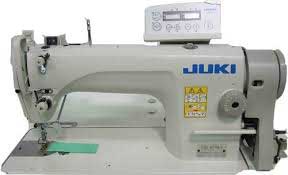
Moreover, you are likely to finding someone who will help you repair your sewing machine if it does need a change in the parts. The overall maintenance is not something you have to worry about much with this, and the costs for the said maintenance will not be sky-high.
Industrial Sewing Machine
Well, in the case of the commercial machines usually available at big factories are always in use. Day in and day out, they are run to produce more and more garments. And thus they have a lot of stress put on them, which is exactly why they need more maintenance.
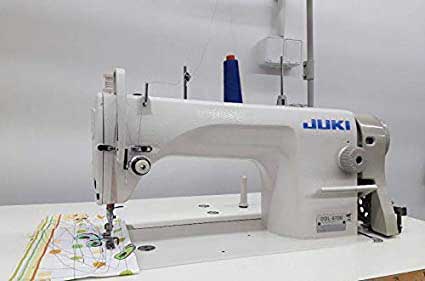
There are maintenance workers who are in charge of taking care of and oiling all the sewing machines in the factory. And thus, the overall cost of this task is quite high.
The Cost of Purchase
Residential Sewing Machine
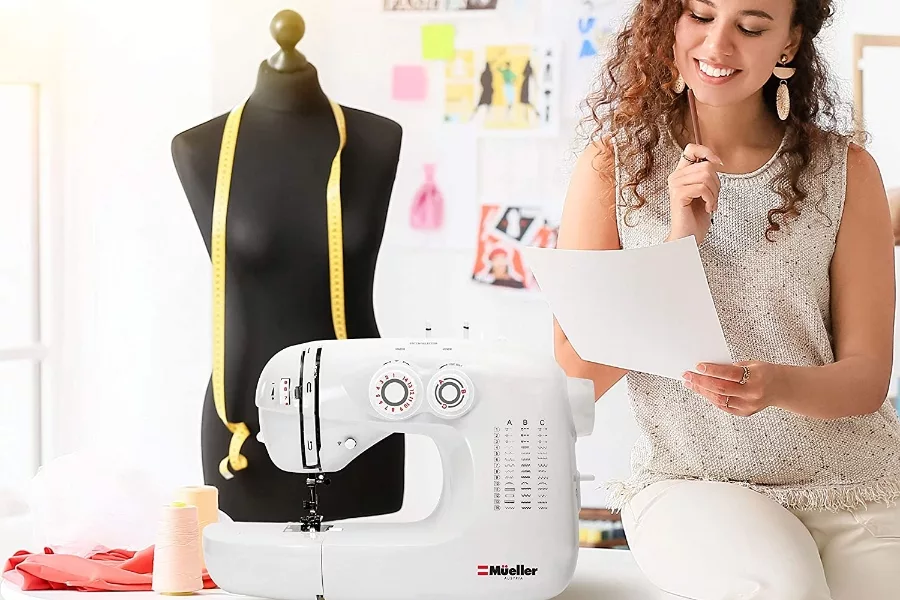
A domestic sewing machine is one that is not very powerful, and neither is it capable of performing the way industrial machinery can be utilized. So, it is safe to say the price of this one is a fraction of the other. Where you will be able to avail this for around $100.
However, you will find a few different machines that will cost you more, ranging from around $200 to $500, that depends on the features that it will provide you with.
Industrial Sewing Machine

This machine, however, is much more powerful than the domestic one. They run all day and are required to perform well time and time again. As they are of better quality and have greater and more efficient performance, they cost much more than $1000.
There are machines that will cost even higher than that, which will provide you with more benefits and even better performance. Which is why many would even justify the astronomical increase in price.
Conclusion on Home Sewing Machines
I hope by now, you clearly understand how one of the machines is different from the other. These are the aspects that guide you while choosing the right equipment for the job you want to do.
For something lighter, a domestic sewing machine is perfect, while for some intense performance, the industrial sewing machine would be better.
 |
 |
 |
 |
 |
 |
 |
 |

About Alice Davis
Alice is a writer who lives in the City of Long Beach. She has a husband, an exceptionally small chihuahua, and 15-pound Maine Coon. Alice got her bachelor of science in biological science from UC Berkeley. Now, she likes writing about a lot of things; including but not limited to technology reviews, science stuff, and anything food-related.
Leave a Reply
You can get FREE Gifts. Or latest Free phones here.
Disable Ad block to reveal all the info. Once done, hit a button below
 |
 |
 |
 |